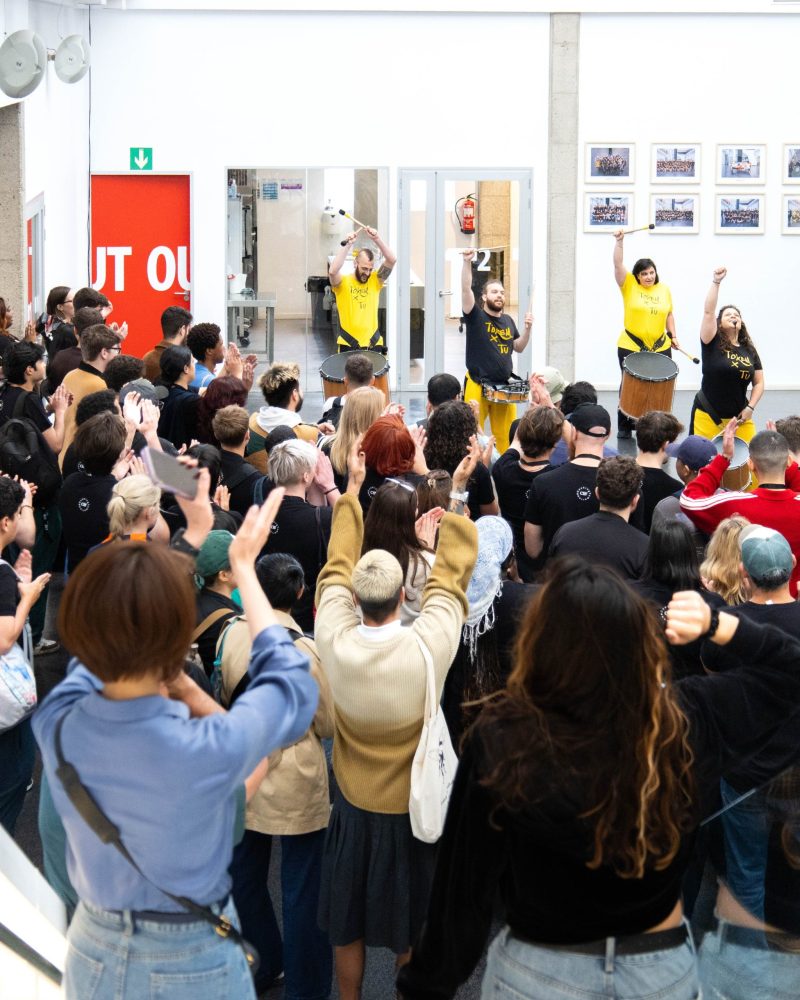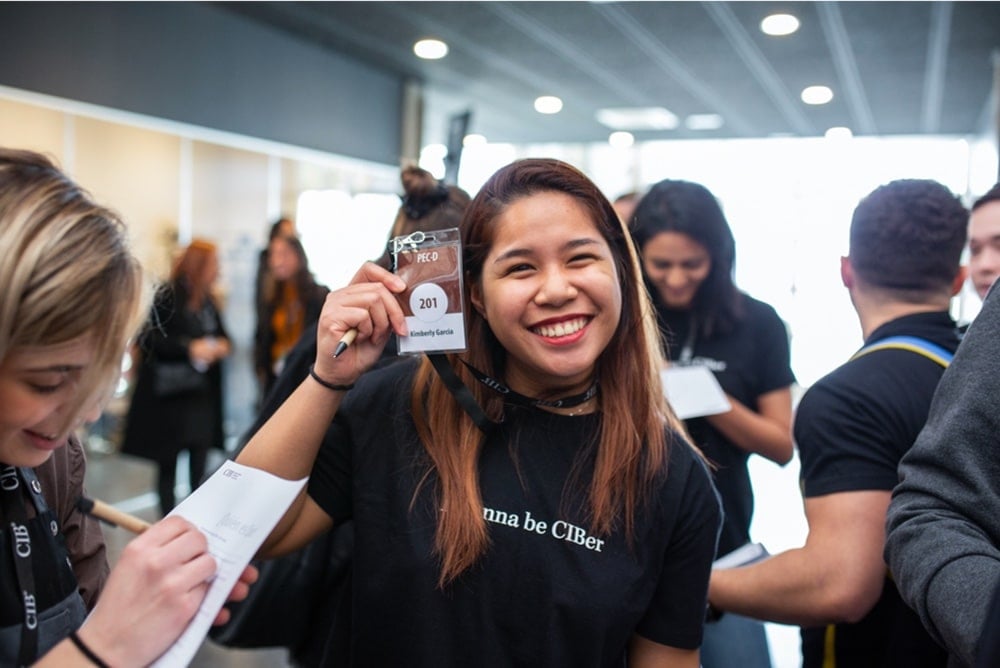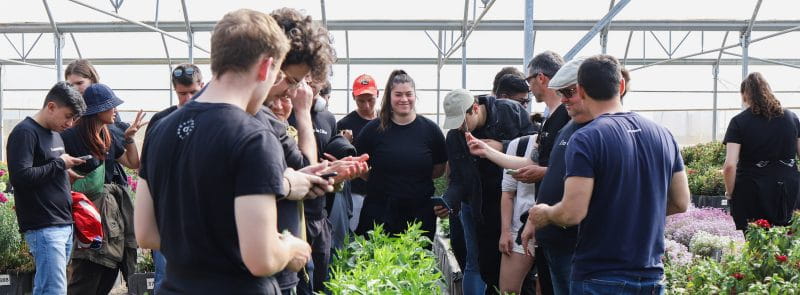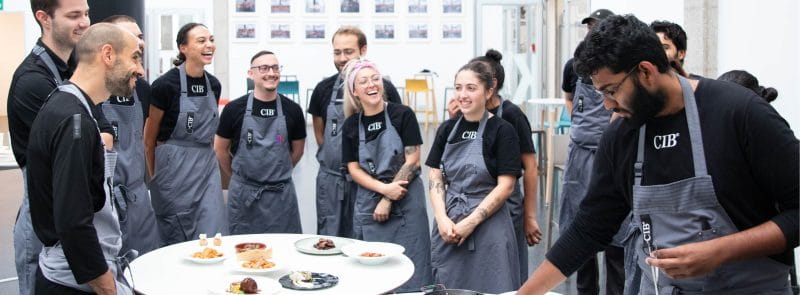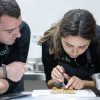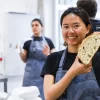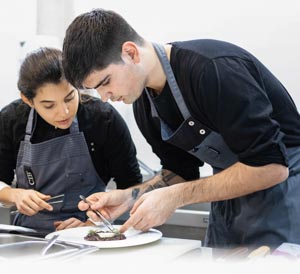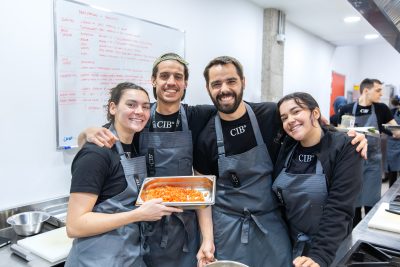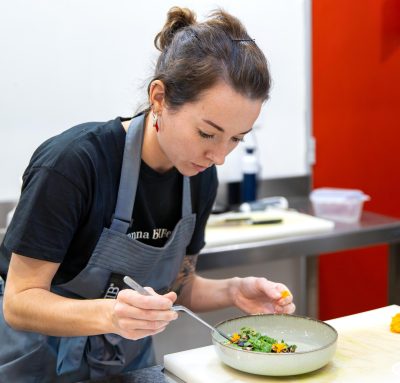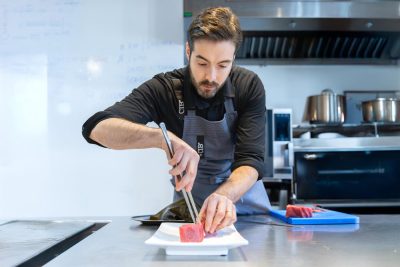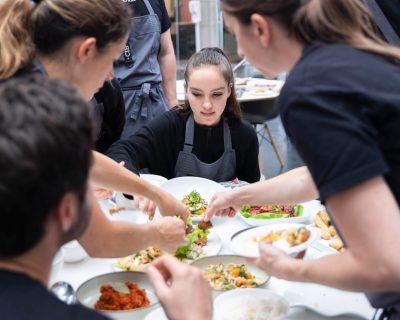There are many cooking schools in the world and many of them are capable of training you to properly handle a kitchen as a chef or restaurant cook.
But not all of them are going to teach you in the same way or you are going to acquire the same knowledge, you are going to live the same life experience or you are going to meet the same type of people. The first thing you have to do is be clear about what you want in your life and what is important to you during the time you are going to invest in becoming a chef.
Like any company, each school focuses on a value proposition that differentiates it from the others, or at least makes an effort to explain it this way, although the reality of what is explained to what is actually lived is usually very different.
That is why we have prepared this guide, to help you make a decision that is undoubtedly very important for your life.
1) How is the profile of the students?
As in any company or product, a type of client or user corresponds, and in the case of a school, one or more student profiles.
Your future depends a lot on the profile of the students of the school, because it is not the same to live and make friends with people from the same country with similar cultural visions, than doing it with people from other cultures, and an entrepreneurial profile that you know will have their own businesses all over the planet. Your classmates will be your friends and professional colleagues for the rest of your life.
Any doubt in the answer should make you suspect that you are in front of a school that “hunts” what it can without paying attention to the consequences.
The profile of a kitchen student from Culinary Institute of Barcelona
- 90% of CIB students come from outside Spain.
- The average age is 27 years, from 18 to 65 years old.
- 70% is from an entrepreneurial profile.
- 60% with immediate capacity to undertake.
- 50% women, 50% men.
- They stand out for their cognitive abilities.
- They love difference, diversity, creativity and innovation.
- Looking to the future while respecting the past.
2) How is the level of the students?
50% of the quality of a course are the contents, teachers, mentors and educational experiences, and the other 50% are the students themselves. The level of the students is of equal or greater importance, it will mark one rhythm or another if they have a profile capable of advancing or if they have an egalitarian basis or not.
How the CIB accelerates the level of its students
The selection and admission process of the CIB guarantees a high level and quality to the student. For the Haute Cuisine Chef course, the student can run the START program. A free program whose mission is to improve and reinforce the culinary foundations so that no one is left behind and guarantee that the level of learning grows exponentially. At the same time, students can take an extension for free to improve their level of Spanish for & nbsp; those foreigners who require it.
| START program* | Features |
| Price | Free and included in the PCAC · Haute Cuisine Chef Diploma.
Available to PEC·H Integrative Heathy Cooking students for an additional cost of 500€. |
| Duration | 32 hours in 8 weeks |
| Number of sessions | 16 sessions |
| Format | Practical and voluntary |
| Goal | Reinforce, Improve and Expand the culinary bases |
*Not available for PEC·T Advanced Culinary Techniques and pastry programs.
3) Are all teaching hours at school?
The teaching hours are those hours within the study plan dedicated exclusively to teaching at the institution. Some cookery schools, especially those that don’t have physical space, include in their curriculum the hours they expect to spend for study or practice outside of school. These hours can never be counted as lectures, make sure they are all lectures by asking for the study plan and your weekly class schedule.
Your weekly schedule at the CIB is always the same: From 8:00 a.m. to 2:00 p.m. for the morning shift and from 3:00 p.m. to 9:00 p.m. for the afternoon shift. Always the same except those days when there is a field trip when the schedule for both shifts is from 8:00 a.m. to 8:00 p.m.
You can see an example of our CIB Haute Cuisine Chef Diploma curriculum
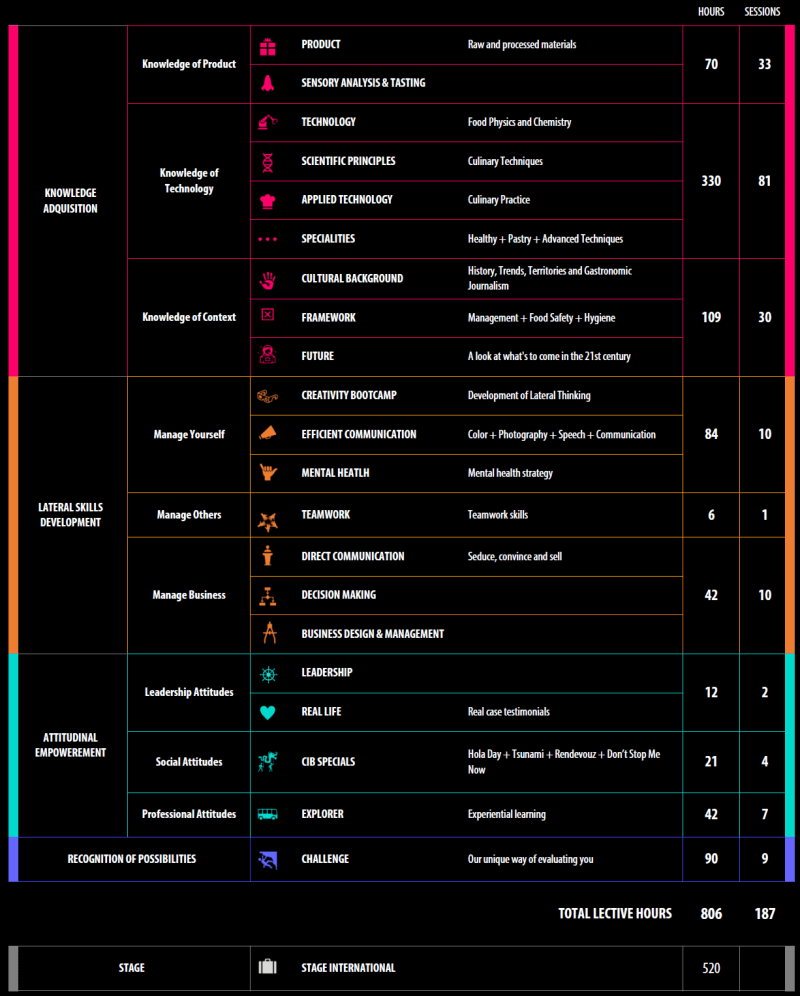
4) Where are the internships or stage in Restaurants? Are they international? How is the selection criteria of practices?
Putting what you have learned into practice is essential to complete your training, it is the litmus test that will allow you to show yourself if you have reached the level of your training expectation. Some institutions have agreements with national restaurants, other international ones, and other schools use their students for internships in their own restaurants and some of them take advantage of it.
How are the restaurant internships at the CIB?
At the CIB, we select agreements with restaurants very well, not just any one is of any use to us and we don’t care whether or not they boast Michellin stars or some other recognition. Our evaluation system with restaurant agreements consists of criteria aligned to the values of our school and the role of the restaurant industry in society.
During the academic year, the student office and internship committee monitors each student, their evolution, objectives, requirements, their knowledge, skills, attitudes and possibilities. With this report we choose the best options to carry out the practices for each student. And it is during the continuity of training in stage mode, where the CIB maintains contact between student and restaurateur, supervising the different functions and evolutions in the different stages in which the student is assigned different responsibilities.
Some information about CIB restaurant internships:
- The duration is between 3 and 12 months depending on the course.
- Between 250 and 2080 hours outside of school hours.
- More than 200 restaurants where you will have the option of doing your internship.
- More than 20 countries around the world that will open your mind.
5) Does the price include knives, uniform and other supplies?
Some schools tend to post their prices without telling you everything. After you have registered, they charge you for the uniform, knives, excursions, materials, visits, etc. Make sure they don’t tease you and ask what is included in the price of the course.
What does the price include in the CIB?
CIB students do not have to pay anything other than what is stipulated in the price of the program. On the first day, all the material is delivered in a backpack and absolutely everything is included there. Also included are all field trips with their breakfasts, lunches and dinners. EVERYTHING .
6) Who are my teachers, can you give me their names?
A parameter that will help you visualize whether or not you are in a powerful school is to see how many teachers you will have during the course (excluding guest chefs and experts). At a minimum, they should be a number equal to the number of subjects in the curriculum. If they are less, you will be right to suspect that you are facing a mediocre center. Also ask for their names and search the internet for their references.
There are more than a hundred professors at the CIB, and many more occasional guests. A program like Haute Cuisine Chef Diploma , for example, has more than 70 professors and guests, of which 45 are tenured professors to teach the 18 general subjects. All of them are active professionals of recognized prestige who receive additional training in our methodologies and actively participate in the Faculty.
7) Do you have a pedagogical address?
Most cooking schools are run by administrative managers or cooks. The main function of a school is to ensure the learning of its students and the management must be delegated to a pedagogue. He asks if the pedagogical direction in the school is in the hands of pedagogical professionals who make sure that there is an taxonomic map , some objectives and a rubric for each subject.
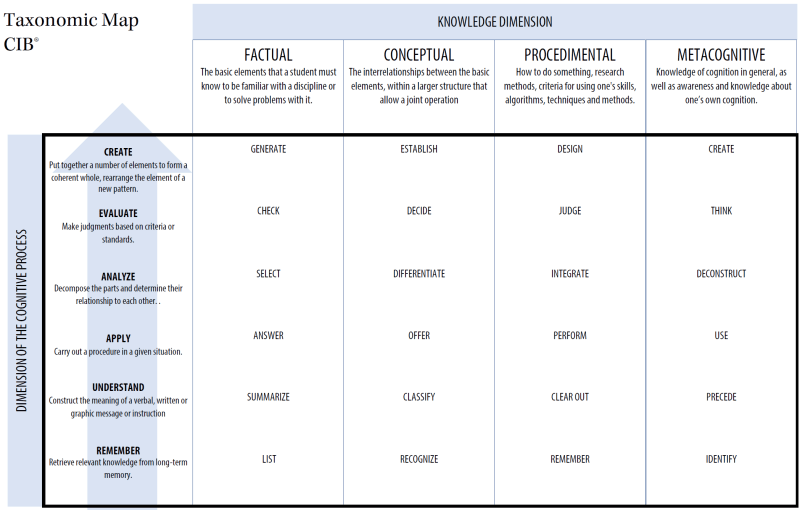
At the CIB the Academic direction is in the hands of Francesc Balagué , Doctor in Pedagogy specialized in Innovation and Design of Educational Experiences and with him there is a complete team of coordination, planning, assistance and academic documentation.
8) What criteria do you use to select students?
The best schools do not allow just any candidate into their classrooms. Ask what the acceptance rate is, if they don’t know or the number seems high, be suspicious.
How do we do it at the CIB?
The CIB students are selected and interviewed one by one by the pedagogical direction and by the founders after the initial cognitive evaluation process. Less than 5% of the students who request it manage to enroll in our school. CIB is not for everyone .
We have a powerful algorithm to evaluate the thousands of applications that come to us, evaluating their history in the admission process, the salience of our values, their motivation and expectations for the future. An own process that goes through different stages and an admissions committee whose mission is to understand the profile of the candidates, their expectations for the future, heterogeneity and compatibility with the members of the group they choose to attend.
At CIB, the enrollment ratio is less than 5% of those who request it. A ratio similar to Harvard University.
9) What is the evaluation system like?
Many will tell you that through midterms and final exams. So you are going to play a card in a single day and you will have to memorize formulas and recipes, phrases and concepts in order to obtain your title.
How is the evaluation at the CIB?
At the CIB, evaluations are transversal and are done in what we call Challenge and Stress Challenge in which we will challenge you, at first in a group and later individually, to solve an increasingly complex problem. At CIB Challenge days are the most fun, where each student is tested individually and collectively.
10) What is the approval rate of the students?
Some schools give away degrees and others take training very seriously. Very high ratios (above 90%) are suspected of being excessively generous or not demanding with their students.
At the CIB we don’t give away diplomas, you have to earn them and more than 70% of those who start the course get it.
11) What is the approval grade?
In some schools the grade is 50%. That is, if you know half of what you owe it is enough. Educational excellence should not consider a 5 as enough, can you imagine a life of 5?
The more advanced schools do not work like this, but they mark taxonomic objectives and use a rubric according to those objectives. This is how we do it at the CIB. In order to pass each subject you must meet at least 66% of the objectives set and it will seem insufficient.
12) How much have they grown in recent years?
There are schools that boast of age because they have been around for a long time. And others boast of youth because they are newcomers. Neither parameter is a guarantee of anything, except that younger girls tend to have newer equipment, which does not guarantee anything either. The important thing is that you know if it is a school that is growing or that is in decline. Ask how many students they had five years ago and how many they have now, that will give you a clue of their position.
CIB is a young school—very young. Its first graduating class dates back to January 2019. But it is growing fast. In January 2025, we welcomed the largest class in our history, and the growth continues at a rapid pace, with future students already enrolled up to two years in advance.
13) How many stoves and fire units do you have?
There are many schools that, in the kitchens, concentrate three and up to four students per fire point, so the student always has to share the practice with one, two and up to three more companions in exercises individual.
How are the classrooms and kitchens of the Culinary Institute of Barcelona configured?
At the CIB we have three kitchens and a workshop that occupy a space of more than 250 m2. In each kitchen there are 8 stations with 4 burners each truly industrial. Our capacity is 16 students per kitchen so, in addition to having space, you have at least two fires for you.
Do you want to see the school from home?
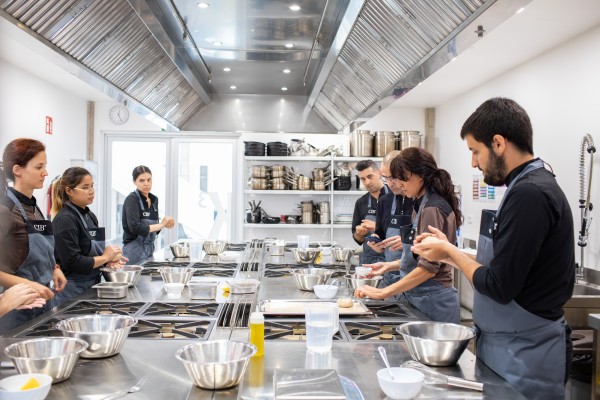
14) How many square meters does the dressing room have?
Being put in a two-by-two room to dress with your colleagues, besides being uncomfortable and degrading, is an attack on your health and your privacy. Many schools do not even have changing rooms or they are tiny and cause many problems. The size of the changing rooms is a good indicator of the size of the school and the effort made for the comfort of its students.
At the CIB we value even the changing rooms.
At the CIB, the changing rooms have individual storage lockers, showers, toilets, air conditioning and heating. We have two groups of changing rooms and toilets, one for them and one for them, as well as an additional one for people with limited accessibility. The set occupies more than 130m2. For us, your privacy and comfort is essential.
15) Is there a student office at the school?
It is the area or department of a school that is in charge of helping students to solve their doubts, problems and help them with legal procedures when they settle in the country. He is also in charge of coordinating the practices, extra activities and the job bank for alumni. If a school does not have a specific area with dedicated staff, you have reason to suspect that this function is not taken seriously.
At CIB, the Student Office was the very first department established—almost two years before the school officially opened its doors. Our Student Office speaks many languages and is always available to anyone who has questions or needs support.
16) How can I guess if a school is reliable or not?
It’s hard to get it right without doing some research, but there are some clues that can help you. From social networks, for example, you can see what and how they publish, if you see that they concentrate on showing dishes it is that they do not have much to tell, also be suspicious if they do not show their facilities or if they always show them empty. The best thing is that you pay attention to the scenes in which their students appear and how they interact.
One of the best ways is to directly ask students who post at school. Usually they will tell you the truth, although it is also true that they may not know any other option. However, if you see that the school always shows its students in a natural way, without posing, does not abuse plate plans, does not hide its facilities and you receive good feedback from its students, it will be that you are in good hands. Try it with CIB students at Instagram or Facebook .
17) How valid are the university certificates associated with a cooking school really?
Some schools offer a certificate associated with a university. These certificates are in no way university degrees nor do they prove anything other than that there is a certification contract between the school and the University.
At the CIB we do not have certifications with Universities because if we submitted our study plan and our methodology to their requirements we would not be able to do almost anything that we do, we are many years ahead. However, universities like Stanford , RMIT and others collaborate with us and their students attend our Creativity Workshops and Innovation regularly.
18) Why is there such a price difference between one school and another?
There are many factors that define the price of a program or course. From the density and attendance ( how many students attend ), & nbsp; the quality of the teachers ( what they perceive ), the quality of the facilities ( amortizations), the products used, the aid in the form of grants and sponsorship they receive.
The CIB is a school that is surely more expensive than the others. It does not receive public aid nor does it tolerate the slavery and dependency that sponsorship requires. We have the best professionals, & nbsp; enviable facilities and we don’t like the high density of the classrooms. Our methodology includes the freedom to use the best raw material so, yes, the price is higher than in other schools and we do not hide from it, our prices are public and appear on the web for everyone to see.
19) Why are so many schools offering scholarships?
The word scholarship has become synonymous with “discount” and is often used not to say “offer” in business arguments. In fact, the closer the start date of the program is, the more likely you are to be “awarded” a “scholarship.”
At the CIB we don’t have scholarships, but only a lucky few can receive financial assistance in their enrollment process if they do it with the time and quality necessary to stand out from the rest.
If you need financial help or get the best price, our advice is that you register as far in advance as possible (unlike the others) you can get a discount of up to almost 25% if you enroll a year in advance, for example.
20) Choose the right city to study. Is Barcelona your best option?
You should choose a city that gives you more than what the school gives you. A favorable environment for creativity, innovation, culinary knowledge and everything that surrounds it.
Just as Paris capitalized on the first wave, along with Lyon and Bordeaux, of a gastronomic trend, in this century it is Barcelona that capitalizes on the most avant-garde culinary trends. Chefs like Ferran Adrià, the Joan brothers, Jordi i Pitu Roca, Chef José Andrés have been trained in this Catalan land and have transformed world cuisine. Chefs such as Massimo Bottura (the Franciscan Osteria) or René Redzepi (Noma) passed through Catalan kitchens before establishing themselves alongside the others as the best chefs in the world.
If what you are after is something classical, you will find classical schools that still follow the French model all over the world and also in Barcelona. They are traditional schools that, like the French ones, have military inspiration and the cries of “Yes, Chef”, military discipline, jackets and stripes are the usual thing in their kitchens.
If, on the other hand, you are looking for creativity and innovation, with 21st century ways of doing things that teach you to work as a team and from leadership, that open your mind and allow you to create freely, there are very few specialized centers and only one in Barcelona, the culinary capital of the world and it’s called CIB · Culinary Institute of Barcelona.
21) Can you be a chef in just one year or less?
In 6, 8, 9 or 12 months you cannot become a specialized chef, but, if the school is really good, it will give you the tools and knowledge necessary for you to work comfortably in a professional kitchen. You will do the job over time, even if you’ve spent four years learning.
Training at the CIB is modular and the first cycle, which lasts 8 teaching months plus 3 stage can be extended with four more terms of specializations and up to three more in the administrative management of kitchens and restaurants. So we contemplate formats from 3 months, for those who are already chefs and want some specialization, up to almost four years for those who want everything, including the 6 months of international training.
25% of our students, at the end of one module, continue in another, repeat, and 33% enroll from the beginning in at least three of them.
22) Will I be an Executive Chef by studying a professional cooking course?
The expression “Executive Chef” is currently very misused because it is applied by any cook who manages a kitchen and this is not really what defines this function. Most schools have chosen to inflate their courses with doses of very basic management learning, but that is far removed from the real role that the world interprets for this profession.
At the CIB you can achieve the degree of Executive Chef through a specific six-week program where you will exclusively do very advanced training in this important job position. An executive chef can manage several kitchens simultaneously and even several restaurants of different types. In our case, the graduate is the one of ECD · Executive Chef Diploma and to access it, in addition to being a chef, you must pass a skills test such as handling Excel, numerical conception, and a specialized interview.
The other way is to enroll in the Grand Chef Diploma which includes, in addition to the Chef training, a culinary specialization and a specialization in management for a total duration of two years.
Whatever your decision, it will be the right one. Investing in training is the greatest lever for growth for your future , and the most important thing is that you bear in mind that choosing where to study will mark your professional milestones and help you define yourself as a person and a professional.
23) What if I already have a business idea?
Imagine walking into a school where the faculty is not only there to teach you, but to guide and support you in bringing to life that project you have been dreaming about for years.
At CIB, 70% of our students have an entrepreneurial mindset. That means some may have already launched a business, others arrive full of ideas waiting to be developed, and some simply come eager to create from scratch.
CIB is a launchpad for ideas. We will be by your side throughout the process, giving you the tools and knowledge you need to make things happen. Through our management programs—DCS · Restaurant and Pastry Business Entrepreneur Program and ECD · Executive Chef Program—you will gain a deep understanding of how businesses work and join the CIB Mentorship Program.
Our mentorship program evaluates student projects and ideas to foster both professional and personal growth. You will also develop key skills such as leadership, communication, and conflict resolution.

24) Will my training reflect the reality of the industry?
The culinary industry has long been seen as harsh and unforgiving. Shouting, stress, toxic environments, substance abuse, poor working conditions, subpar facilities—this is still the reality in far too many kitchens today. And to be honest, we believe most culinary schools around the world choose to look the other way.
But things are changing fast, led by the new generations.
The excuse “it’s always been like this” is no longer valid. There are better ways—and education is the catalyst for change.
This is why, from day one, CIB has taken on the responsibility of showing our students the reality of the industry—how to face it, and more importantly, how to improve it. The initiative No, Chef! was born from our desire to dignify the chef’s role and align it with the values of the 21st century.
Through this initiative, we launch actions to elevate the profession and empower future CIBers to transform their industry. A few examples:
- We collaborate with international institutions like The Burnt Chef Project, combining our expertise and methodologies to amplify the message.
- We hold Real Life sessions—honest conversations where professionals share real experiences from the field.
- We include mental health sessions in our programs and company culture, in partnership with Institut Guttmann in Barcelona.
We believe you deserve a school that cares about your real future—the one that begins after graduation.
25) Will this be the best learning experience of my life?
At any school, you will learn techniques and theory. But real learning never stops—it continues throughout your entire career. You will forget the content of that Tuesday morning class. But you will never forget the small, meaningful things that shaped your journey.
If we could give you just one piece of advice:
Choose the school that makes the learning experience unforgettable.
At CIB, we want your time here to leave a mark on you for life. That is why we immerse you in our rituals, our culture, our traditions—from the moment we first connect with you at home, until you walk through our doors and live it all firsthand.
The batucada of HOLA Day, the Roll Call before 8:00 every morning, the music playing between sessions, being the first from your city to pin yourself on our map, the challenges, the thousands of restaurants and markets you will explore, field trips, the Pioneers Wall, drinks at K5, the sun and beach of Barcelona, sharing a flat with total strangers who become family, the “not-goodbyes” of Don’t Stop Me Now…
Studying here is designed so that every single day becomes a memory worth keeping.
